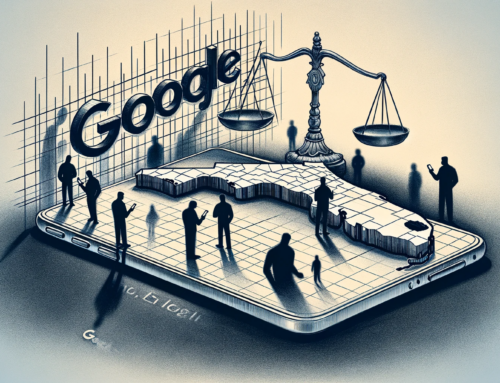Police Interrogation Tactics in Florida
You’ve been arrested. The flashing lights, the sirens, the handcuffs – a scene ripped straight out of a crime thriller, except this time, you’re the star, and the script isn’t in your hands. Now, you’re facing the interrogation room, a bare square with a single table and two chairs, and across from you sits a detective with a steely gaze and a practiced poker face.
The truth is police interrogation tactics are a complex dance between information gathering and persuasion. While police officers are obligated to follow certain procedures, the interrogation room can be a disorienting and intimidating place, especially for someone unfamiliar with their rights.
Know Your Rights When Being Interrogated
Before discussing the specific tactics you might encounter, let’s solidify your foundation: your rights.
- Right to remain silent: You have the absolute right not to answer any questions. Remember, anything you say can and will be used against you.
- Right to an attorney: You have the right to request an attorney at any point during the interrogation. Don’t wait for the officer to offer you one.
- Right to stop the interrogation: You have the right to end the interrogation at any time. Simply state your desire to stop and remain silent.
Remember, these rights are your armor. Never waive them without consulting with an attorney.
Common Police Interrogation Tactics
Now, let’s peek into the detective’s playbook. Here are some of the most common interrogation tactics you might encounter:
The Good Cop/Bad Cop Routine
This classic plays on your emotions. One officer feigns empathy, while the other adopts a hostile persona, creating pressure to confess to escape the “bad cop’s” wrath.
Minimization and Maximization
The officer might downplay the seriousness of your alleged crime (“It was just a little mistake”) or exaggerate the potential consequences (“You’ll lose everything if you don’t cooperate”).
False Evidence
The officer might present fabricated evidence or claim to have witness testimony you know doesn’t exist. This is a scare tactic to elicit a confession.
Time Pressure
The interrogation might be prolonged, creating a sense of exhaustion and desperation to just get it over with.
Rapid-Fire Questioning
This tactic involves bombarding you with questions to confuse and disorient you. The aim is to catch you off-guard, making it harder for you to craft consistent, false statements.
Silent Treatment
Sometimes, an interrogator might simply remain silent after you’ve given an answer. This uncomfortable silence can compel you to speak more, often to fill the gap, potentially leading you to share more information than intended.
Promises and Deals
The officer might offer leniency or plea bargains in exchange for a confession. Remember, these promises are rarely guaranteed.
Tips if You Are Being Questioned by the Police
If you find yourself in an interrogation room, here are some key tips to remember:
- Repeat your request for an attorney. Don’t be afraid to be assertive.
- Do not answer any questions about the alleged crime. Stick to basic biographical information.
- Do not lie or fabricate information. This can weaken your defense.
- Maintain a calm and respectful demeanor. Avoid getting emotional or argumentative.
- Take notes if possible. Documenting the interrogation can be helpful later.
You are not obligated to prove your innocence. The burden of proof lies with the prosecution.
FAQ’s About Police Interrogation
Here are some frequently asked questions (FAQs) about police interrogation:
Can the police lie during interrogation?
Unfortunately, in most cases, police can lie to you during interrogation. This includes things like:
- Claiming they have evidence they don’t.
- Exaggerating the charges against you.
- Making false promises of leniency.
- Pretending to have witness testimony.
While this might seem unfair, it’s important to remember that you also have the right to lie to the police, as long as you’re not under oath. However, lying about your identity or giving false information in official reports can lead to additional charges.
Are police interrogations public record?
No, police interrogations are not typically public records. However, there may be exceptions depending on the specific circumstances of the case, such as:
- If the interrogation is part of a court case, it may become part of the public record.
- If the police release information about the interrogation to the media, it could become public.
It’s important to note that even if the interrogation itself isn’t a public record, any evidence obtained during the interrogation may be used against you in court.
Why are police interrogation rooms cold?
There’s no definitive answer to this question, but some theories suggest that cold temperatures can make people feel more alert and focused, which can be helpful for interrogations. Additionally, cold temperatures can make people feel more uncomfortable and anxious, which may make them more likely to talk.
It’s important to remember that regardless of the temperature, you have the right to request breaks or to stop the interrogation at any time.
Can police hit you during interrogation?
Absolutely not! Police are prohibited from using any form of physical force or violence during interrogation. If you are being physically harmed, you should immediately state that you want to stop the interrogation and request an attorney.
How long can police hold you for interrogation?
In Florida, there isn’t a strictly defined maximum duration for which police can hold a person for questioning. However, legal standards indicate that detention for interrogation becomes problematic if it extends for too long without the police diligently pursuing means of investigation likely to confirm or dispel their suspicions quickly. Without probable cause to arrest, police are limited in how long and under what conditions they can detain a person for questioning, especially after they have asserted their right to legal representation.
Can you leave a police interrogation?
Yes, you can leave a police interrogation at any time (although you cannot leave police custody if they have probable cause to arrest you). Simply state that you want to stop the interrogation and that you want to speak to an attorney. The police cannot force you to stay once you have invoked your right to an attorney.
Can police interrogate you without a lawyer?
Yes, the police can interrogate you without a lawyer present. However, you have the right to request an attorney at any point during the interrogation. Once you have requested an attorney, the police must stop questioning you until your attorney is present.
Remember, your right to an attorney is one of your most important rights. Don’t hesitate to exercise it if you feel uncomfortable or unsure about what to say during an interrogation.
When in Doubt, Always Consult an Attorney
The interrogation room can be a daunting experience, but you don’t have to face it alone. Our experienced Miami criminal defense attorneys are here to protect your rights and guide you through every step of the legal process.
Don’t let police tactics get the best of you. Contact us today for a free consultation, and let us be your voice in the face of interrogation. Together, we can ensure you get the fair and just outcome you deserve.
CALL US NOW for a CONFIDENTIAL INITIAL CONSULTATION at (305) 538-4545, or take a moment to fill out our confidential and secure intake form.* The additional details you provide will greatly assist us in responding to your inquiry.
*Due to the large number of people who contact our law office requesting our assistance, it is strongly suggested that you take the time to provide us with specific details regarding your case by filling out our confidential and secure intake form. The additional details you provide will greatly assist us in responding to your inquiry promptly and appropriately.
Additional Resources:
- (2005) Police Interrogation from a Social Psychology Perspective, Policing and Society, 15:4, 379-399, DOI: 10.1080/10439460500309956
- James Orlando, A. A. (n.d.). Interrogation Techniques. https://www.cga.ct.gov/2014/rpt/2014-R-0071.htm
- Irving, B . “Police Interrogation – the Psychological Approach | Office of Justice Programs.” Www.ojp.gov, 1980, www.ojp.gov/ncjrs/virtual-library/abstracts/police-interrogation-psychological-approach.
THERE ARE THOUSANDS OF LAW FIRMS AND ATTORNEYS IN SOUTH FLORIDA. ALWAYS INVESTIGATE A LAWYER’S QUALIFICATIONS AND EXPERIENCE BEFORE MAKING A DECISION ON HIRING A CRIMINAL DEFENSE ATTORNEY ATTORNEY FOR YOUR MIAMI-DADE COUNTY CASE









